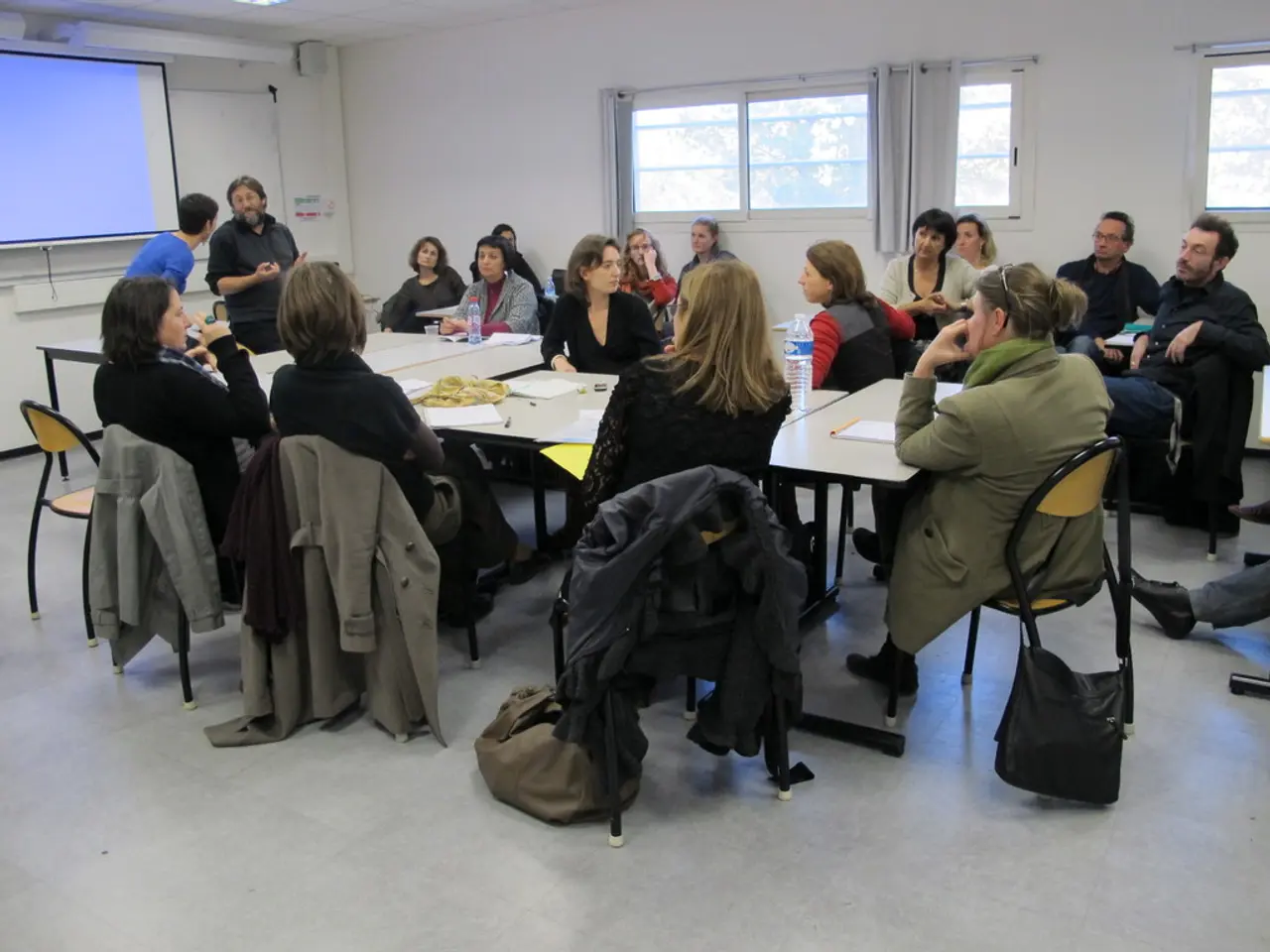Strategies to Develop and Maintain Relationships Among Grown-Ups
In the realm of human connections, adult friendships often take a backseat to professional and family obligations. However, recent research emphasizes the importance of nurturing these relationships for a richer, more satisfying social life, as well as for long-term happiness and health.
A study published in the Journal of Personality and Social Psychology highlights the significance of being dependable and honest in fostering strong connections and ensuring the longevity of relationships. Consistency in your actions is crucial for building trust and reinforcing adult friendships.
Regular meetups with friends can help maintain close friendships and increase life satisfaction, according to a report. Scheduling monthly coffee dates, dinners, or group activities can help stay connected despite busy schedules. Regular check-ins can be in person or virtual.
Being present and actively engaging during interactions is another key factor. Minimizing distractions, practicing active listening, maintaining eye contact, and showing genuine interest in your friends' lives strengthens bonds and improves well-being.
Showing appreciation and gratitude is another strategy to strengthen friendships. Simple gestures like thank-you notes, small surprises, or celebrating milestones uplift the friendship and improve well-being.
Maintaining open and honest communication is essential for addressing conflicts early, listening empathetically, and expressing feelings freely. This builds trust and deeper understanding, essential pillars for lifelong bonds.
Embracing change and being adaptable as friendships evolve with life’s circumstances, interests, and priorities is another important strategy. Being flexible about how and when you connect helps sustain friendships long-term.
Making a conscious effort and prioritizing friendships is also crucial. Recognizing that long-lasting relationships require commitment and consistent nurturing is the first step towards cultivating meaningful, resilient friendships.
Leveraging existing relationships and shared interests can facilitate natural bonding opportunities. Reconnecting with old friends or acquaintances and seeking new friends through mutual hobbies, activities, or community groups can help foster new connections.
Taking the initiative and being inclusive is another strategy. Reaching out, inviting others, and creating opportunities to meet new people within your interests or networks can help expand your social circle.
Engaging in new experiences with friends can deepen relationships and make your time together more enjoyable. Sharing in each other's successes enhances connections and builds a supportive friendship network.
Social connections can lower stress levels, improve overall well-being, and even lead to a 40% reduction in the likelihood of premature death, according to a report from the University of California. Friendships provide emotional and psychological support, reducing the risk of mental health issues such as anxiety and depression.
Traveling with friends provides opportunities for shared experiences and enhances the bond between travelers. Encouraging personal growth by exploring different perspectives and experiences with your friends strengthens your social circle.
In conclusion, cultivating meaningful, resilient friendships requires a combination of emotional availability, practical effort, and engagement in shared activities. Regular communication, mutual understanding, appreciation, and trust are essential for maintaining adult friendships that thrive over time.
Engaging in education-and-self-development activities with friends can deepen relationships and foster personal growth. Sharing knowledge and personal development strategies with each other can help build a supportive friendship network that contributes to overall well-being.
Reading books on personal development together, attending seminars or workshops, and discussing insights can strengthen friendships and lead to personal growth. Regular discussions on personal growth topics can help friends understand each other better and provide emotional support.
Collaborating on personal-growth projects or setting mutual goals can also foster accountability in adult friendships. Working together towards common goals reinforces the connection and creates shared memories that strengthen the friendship.




